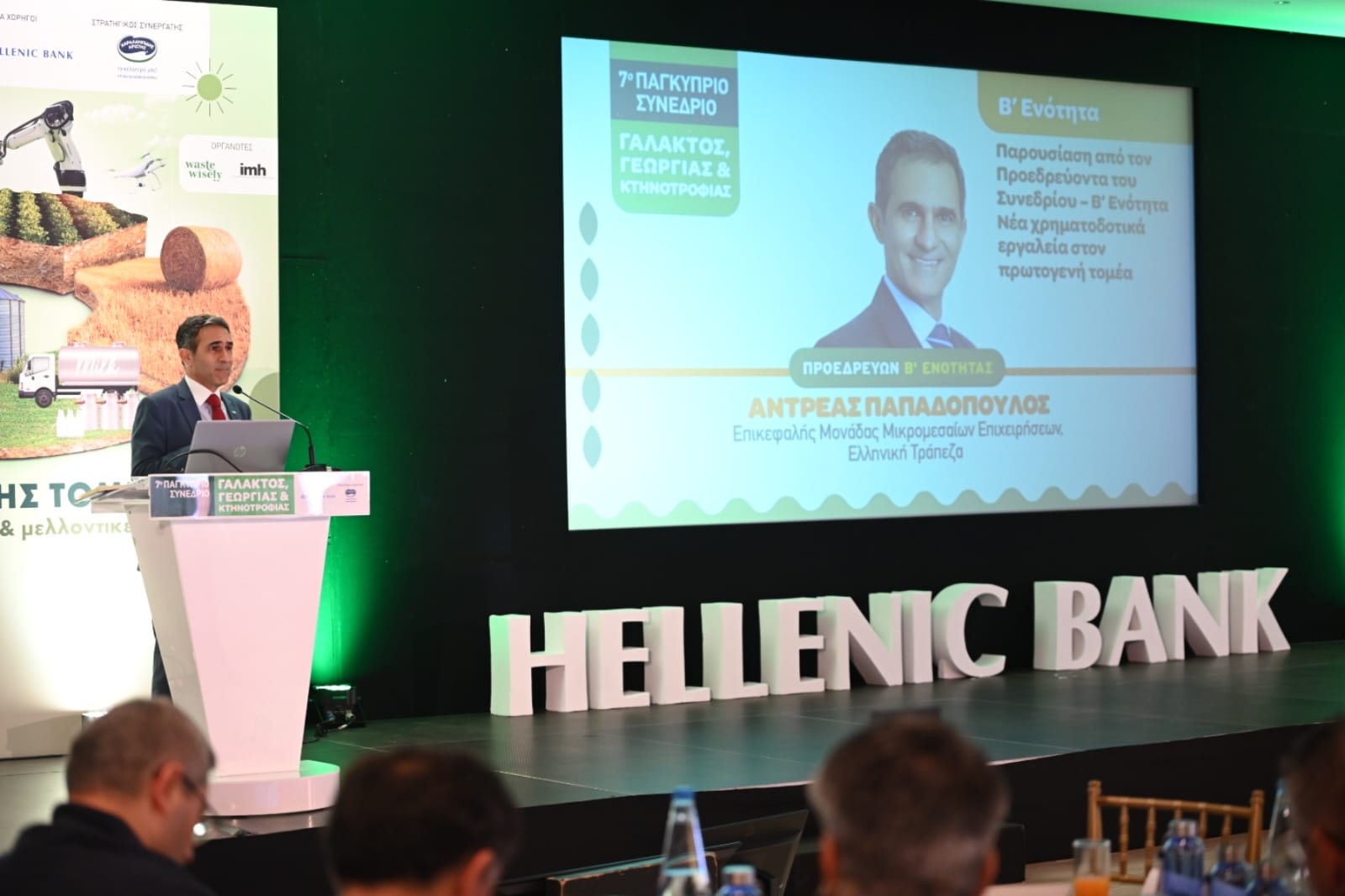The challenges and trends of the primary sector, which concerns activities that typically provide raw materials for further processing, were discussed at the 7th Pan-Cyprian Dairy, Agriculture, and Livestock Conference, which was recently held at Ktima Kousioumi in Nicosia.
This year’s conference focused on the sector’s role as a key pillar of the Cypriot economy, its challenges, and the prospects for further development.
The event aimed to explore ways in which the agricultural sector can contribute more significantly to the sustainable development of Cyprus’ economy, attract investments, and adopt new methods and technologies.
Attendees were informed about the impact of the Green Deal on the primary sector, which aims for sustainable agriculture, emission reductions, reduced use of synthetic pesticides and fertilisers, improved waste management, and the promotion of sustainable livestock farming.
Moreover, it was noted that the goal is to make the primary production of food and biomass climate-neutral by 2035.
Andreas Papadopoulos, head of the SME unit at Hellenic Bank, emphasised that the agriculture and livestock sectors can significantly contribute to the development of the Cypriot economy.
He noted that with smart technological tools and guidance from the Green Deal, new prospects and opportunities for domestic product production are emerging.
In addition, he outlined the new financial tools available to professionals in these sectors, aimed at improving their work and production.
“The primary sector faces many challenges, particularly due to unpredictable weather conditions, increased competition, and market demands,” Papadopoulos said.
“The development of this important sector for the Cypriot economy requires coordinated efforts from many stakeholders,” he added,
“To this end,” he continued, “Hellenic Bank is in consultation with the Ministry of Agriculture and the Cyprus Agricultural Payments Organisation to create a new financial tool that will allow eligible farmers from various investment schemes easier access to financing, reducing the need for significant collateral”.
What is more, Papadopoulos also stressed that “the continuous upgrading of the sector’s infrastructure and the integration of technological tools, combined with the competitive advantage of local production within the framework of the Green Deal, signals a more promising future for our primary sector”.






Click here to change your cookie preferences